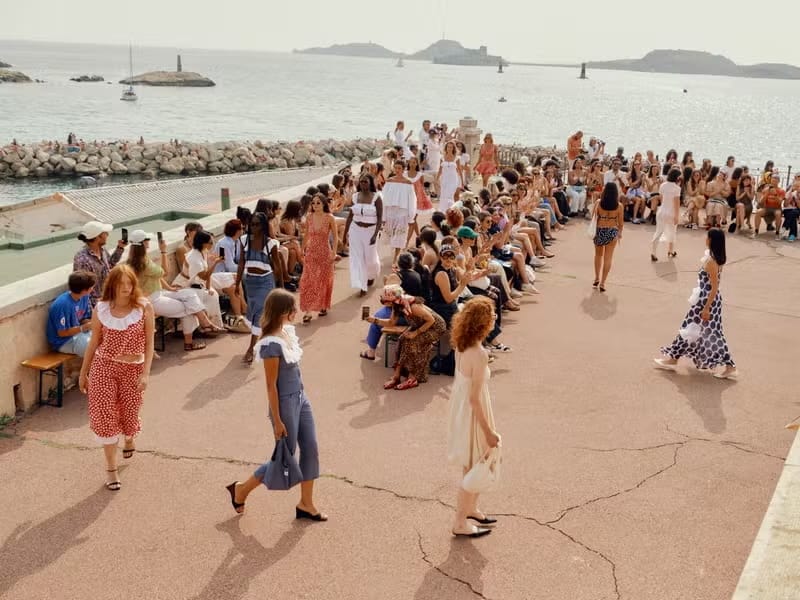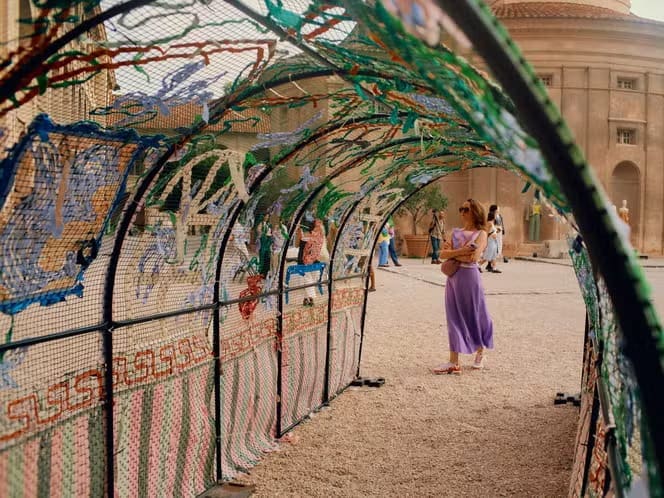A week-long celebration of sustainable, secondhand fashion challenges fast fashion’s environmental toll
France’s inaugural Slow Fashion Week took place in Marseille from June 7 to 14, offering an alternative model that prioritizes secondhand clothing, local production, and sustainability over the typical glitz of major fashion capitals. As global conversations intensify around fashion’s environmental impact, this event underscores a growing movement within the industry toward more responsible consumption and production.
Organized by the Marseille-based Baga collective, Slow Fashion Week featured over 50 events including runway shows, workshops on embroidery and repair, upcycling sessions, and studio visits—all emphasizing a hands-on, educational approach to fashion. The event consciously avoided the spectacle of traditional fashion weeks, with attendees dressed casually and runway shows set against the city’s authentic backdrop rather than lavish venues.
One highlight was a fashion show on a sailboat docked at the MuCEM esplanade, where the local brand Topsis presented pieces made entirely from secondhand sportswear sourced in Marseille. Both the setting and the show reflected the week’s broader ethos: one that prioritized craftsmanship and local access over traditional fashion-week exclusivity.
Despite its growing inclusivity compared to traditional fashion weeks, the event still attracted mostly industry insiders, highlighting the ongoing challenge of broadening slow fashion’s appeal beyond niche circles. The Baga collective aims to change this by expanding Slow Fashion Week into an annual fixture, positioning Marseille not only as a leader in ethical and sustainable fashion but also as a model for how other cities can embrace localized, community-driven approaches.
The timing of Slow Fashion Week coincided with the French Senate’s debate and adoption of legislation aimed at curbing fast fashion imports from large, ultra-cheap companies like Shein. For organizers, the event offered a real counterpoint to mass-produced, disposable clothing by raising awareness about the true human and environmental costs behind low-priced garments.
As the fashion industry faces mounting pressure to address its environmental impact, Marseille’s Slow Fashion Week reinforces France’s growing role as a leader in fashion sustainability. From pioneering legislation targeting fast fashion to grassroots initiatives like this one, the country is increasingly shaping what a more ethical fashion future could look like. Slow Fashion Week’s local, low-impact model may offer a scalable blueprint that challenges the dominance of fast fashion and brings community and care back to the heart of creative practice.



